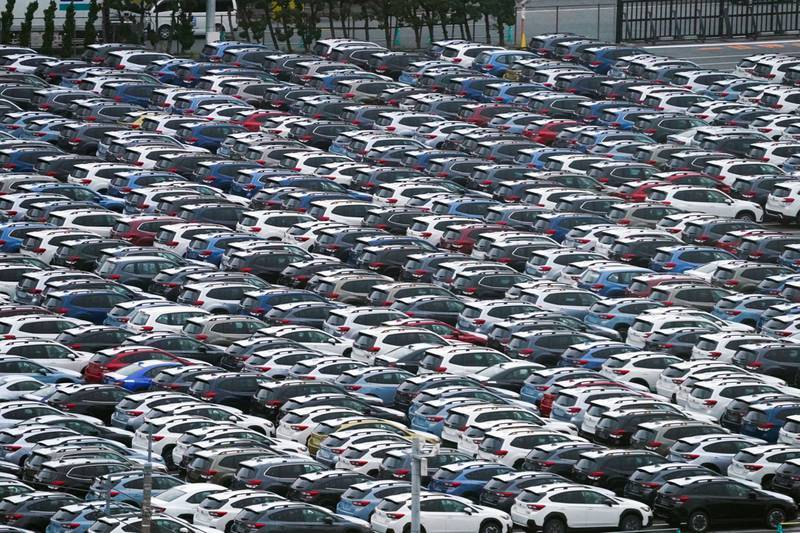Foreign buyers flock to buy Japan’s used cars as yen weakens

The yen’s historic decline is drawing more overseas buyers to Japan’s used-car market, driving up prices already inflated as a result of inventory shortages, said USS Auto Auction, the country’s biggest auction operator.
Parts shortages have led car makers around the world to cut production and car buyers are unsure when they will be able to get their hands on new vehicles, USS president Dai Seta said in an interview. That is fuelling more interest in pre-owned automobiles, he said.Read More : Toyota recalls electric cars over concerns about loose wheels On top of that, with the yen recently hitting 24-year lows, Mr Seta said he is hearing from buyers who export overseas that customers are increasingly clamouring for what they see as “major” yen-denominated discounts. USS handles about 40 per cent of inter-dealer used-car auction transactions in Japan.
With new versions of popular models facing with years-long waiting times, average used-car transaction prices are being driven up at the company’s 19 auction sites across Japan.
The average bid price at USS-run auctions has increased year-on-year for 12 consecutive months through May, 2022. In February, that figure reached a record high of just over 1 million yen ($7,340).
Competition for vehicles in the low-price range of about 50,000 yen is also rising, according to Mr Seta. Given the current industry parts shortages, cars are being viewed as “clusters of resources”, he said. Across the board, “inquiries for used cars will continue to be strong”.
Another part of the rising used-car price puzzle involves Russia — the top destination for pre-owned Japanese vehicles. While the import and sale of new automobiles in Russia been halted by sanctions, Japanese law allows for the export of vehicles that cost less than six million yen. “Russian demand for used cars may become stronger,” Mr Seta said.
Mr Seta said he is also seeing growing interest in vintage Japanese cars, from buyers in markets such as the US.
All of this has led to a windfall for Aichi-based USS. The company posted a record operating profit for the fiscal year ended in March. For the current year, the company forecasts its profit to rise to 43.1 billion yen, up 3.7 per cent.
USS shares have also climbed over the past year. Despite a recent dip, USS has a market capitalisation of almost 732bn yen, putting it on a par with the valuations of car makers Mazda Motor and Mitsubishi Motors.
Parts shortages have led car makers around the world to cut production and car buyers are unsure when they will be able to get their hands on new vehicles, USS president Dai Seta said in an interview. That is fuelling more interest in pre-owned automobiles, he said.
With new versions of popular models facing with years-long waiting times, average used-car transaction prices are being driven up at the company’s 19 auction sites across Japan.
The average bid price at USS-run auctions has increased year-on-year for 12 consecutive months through May, 2022. In February, that figure reached a record high of just over 1 million yen ($7,340).
Competition for vehicles in the low-price range of about 50,000 yen is also rising, according to Mr Seta. Given the current industry parts shortages, cars are being viewed as “clusters of resources”, he said. Across the board, “inquiries for used cars will continue to be strong”.
Another part of the rising used-car price puzzle involves Russia — the top destination for pre-owned Japanese vehicles. While the import and sale of new automobiles in Russia been halted by sanctions, Japanese law allows for the export of vehicles that cost less than six million yen. “Russian demand for used cars may become stronger,” Mr Seta said.
Mr Seta said he is also seeing growing interest in vintage Japanese cars, from buyers in markets such as the US.
All of this has led to a windfall for Aichi-based USS. The company posted a record operating profit for the fiscal year ended in March. For the current year, the company forecasts its profit to rise to 43.1 billion yen, up 3.7 per cent.
USS shares have also climbed over the past year. Despite a recent dip, USS has a market capitalisation of almost 732bn yen, putting it on a par with the valuations of car makers Mazda Motor and Mitsubishi Motors.
Source: www.thenationalnews.com
